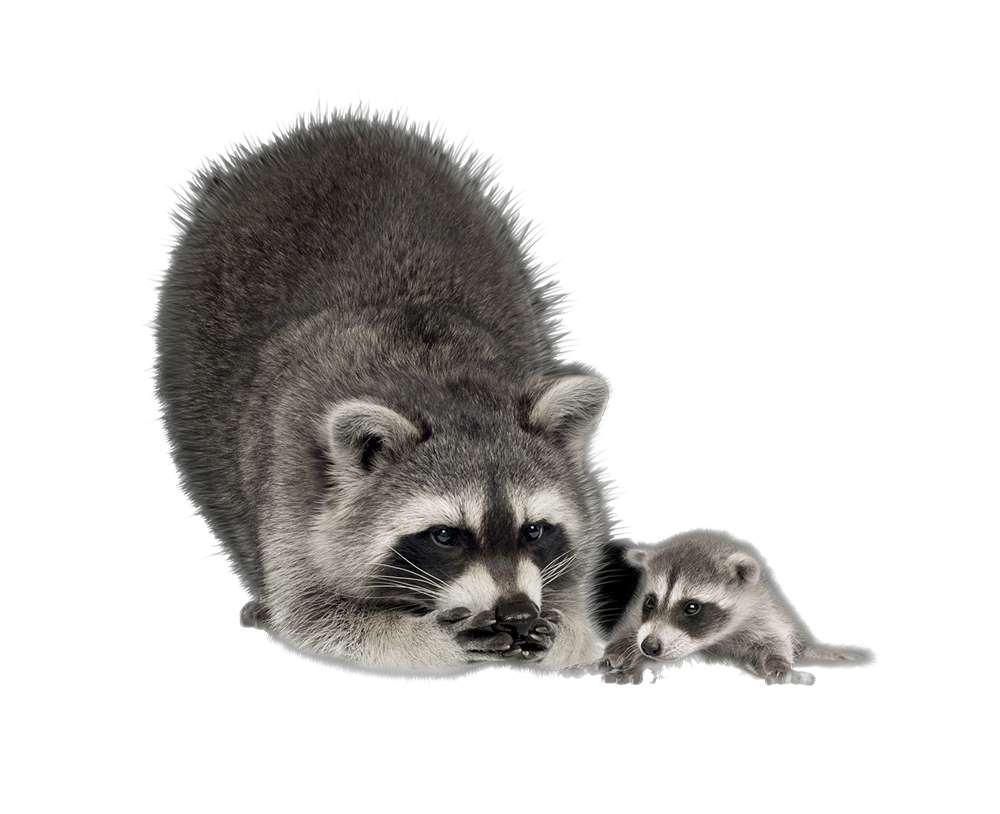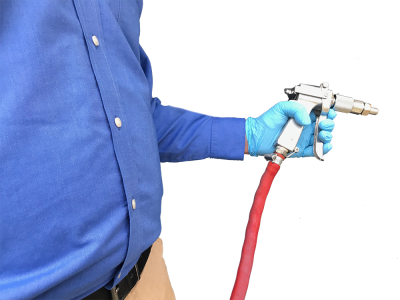
Raccoons
Raccoon Trapping and Removal
We trap and remove raccoons in residential and commercial properties in Columbus Ga. and surrounding areas. We offer a 100% service guarantee of our work so you know you won’t be disappointed. Trapping raccoons takes a fair amount of knowledge and experience to do the job right. We have that experience. You won’t be disappointed . . . guaranteed!
Description
Raccoons are generally between 16 – 28 inches long and can weigh between 11 and 57 lbs. Raccoons are nocturnal meaning they operate mainly at night. They are very intelligent and extremely curious animals. Those 2 factors have made them a nuisance to homeowners because they are fond of raiding and destroying gardens, knocking over trash containers looking for food, and can cause significant damage to homes and other structures looking for food and shelter.
Where Do Raccoons Live?
Raccoons are found throughout most of North America. The original habitats of the raccoon are deciduous and mixed forests, but due to their adaptability, they have extended their range to mountainous areas, coastal marshes, and urban areas, where some homeowners consider them to be pests. As a result of escapes and deliberate introductions in the mid-20th century, raccoons are now also distributed across much of mainland Europe. Recently, raccoons have also been observed in parts of Japan.
Traditionally, raccoons prefer heavily wooded areas with access to trees, water, and abundant vegetation. There, they make their dens in the hollow parts of trees as well as abandoned burrows. Raccoons are extremely adaptable. They are often found in suburban and urban areas, making their homes in man-made structures like attics, sewers, barns, and sheds. In urban areas, raccoons tend to stay closer to their dens with a range of only about 1 mile, depending on their age and sex.
Dousing
One aspect of raccoon behavior is so well known that it gives the animal part of its scientific name, Procyon lotor; “lotor” is neo-Latin for “washer”. In the wild, raccoons often dabble for underwater food near the shoreline. They then often pick up the food item with their front paws to examine it and rub the item, sometimes to remove unwanted parts. This gives the appearance of the raccoon “washing” the food. The tactile sensitivity of raccoons’ paws is increased if this rubbing action is performed underwater since the water softens the hard layer covering the paws. However, the behavior observed in tame raccoons in which they carry their food to water to “wash” or douse it before eating has not been observed in the wild.
Reproduction
Raccoons usually mate in a period triggered by increasing daylight between late January and mid-March. However, there are regional differences that are not completely explained by increasing light. For example, while raccoons in southern states typically mate later than average, the mating season in Canada also peaks later than usual in March and extends until June. During the mating season, males roam their home ranges in search of females in an attempt to court them during the three to four-day period when conception is possible. These encounters will often occur at central meeting places.
After usually 63 to 65 days a litter of typically two to five young is born. The average litter size varies widely with habitat, ranging from 2.5 in Alabama to 4.8 in North Dakota. Larger litters are more common in areas with a high mortality rate, due, for example, to hunting or severe winters. Males have no part in raising young. Raccoon offspring called kits (also called “cubs”) are blind and deaf at birth, but their mask is already visible against their light fur. Once the kits weigh about (2 lb), they begin to explore outside the den, consuming solid food for the first time after six to nine weeks. In the fall, after their mother has shown them dens and feeding grounds, the juvenile group splits up.
Trapping Raccoons
Getting rid of raccoons can be a dangerous proposition. Mother raccoons will often use chimneys or other access points to gain entry into a house to raise her young. It is not a wise idea to try and remove a mother with young as the female will be very aggressive and try to protect her babies from any threats. Inexperienced homeowners trying to save a few bucks can be in for some serious injuries. This is a problem best left to wildlife professionals. When it comes to trapping raccoons, Jarrod’s Pest Control is the most experienced wildlife removal company in the greater Columbus, Ga. area.
We use humane trapping methods when trapping raccoons for our residential and commercial customers. When trapping raccoons, we use a steel cage trap that is safe and effective. It causes no harm and is used to transport raccoons to their new home in the woods where no humans are currently living.
(706) 221-8000
REQUEST A QUOTE

100% Satisfaction
There is a reason our work is guaranteed…we do it right. If you would ever have a problem with pests while we are in charge of your pest control, we will work until the problem is resolved. Our contracts provide you with quarterly service and we will take care of any problems that may happen to arise between visits.
We Guarantee It!

Request Free Pest Inspection
EMERGENCY SERVICE AVAIALBLE
Request Free Pest Inspection
EMERGENCY SERVICE AVAIALBLE

